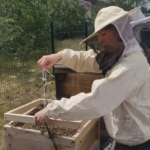Main Track: Technology for Sustainability
- 12.10.23
- 10:00 - 12:00
- Chair : Amna Ramzy

Proposing a Framework to address the Sustainable Development Goals
- Eldar Sultanow
- Capgemini
- Rothsee
- 10:00
Reducing poverty, protecting the planet, and improving life on earth for everyone are the essential goals of the “2030 Agenda for Sustainable Development” committed by the United Nations (UN). Achieving those goals will require technological innovation as well as their implementation in almost all areas of our business and day-to-day life. This paper proposes a high-level framework that collects and structures different uses cases addressing the goals defined by the UN. Hence, it contributes to the discussion by proposing technical innovations that can be used to achieve those goals. As an example, the goal “Climate Action” is discussed in detail by describing use cases related to tackling biodiversity loss in order to conservate ecosystems.

Eco-innovation performance in European Union
- Pawel Bartoszczuk
- Warsaw School of Economics
- Rothsee
- 10:30

News from Europe’s Digital Gateway: A Proof of Concept for Mapping Data Centre News Coverage
- Markus Funke
- Vrije Universiteit Amsterdam
- Rothsee
- 11:00

Towards a warning system for beekeepers: Detecting anomalous changes in sensor data from honey bee colonies
- Diren Senger
- University of Bremen
- Rothsee
- 11:30
